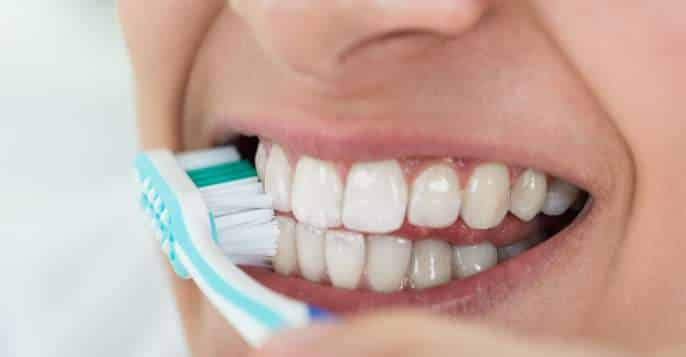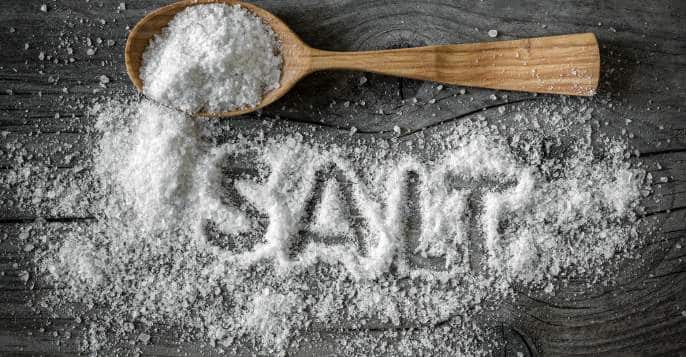Introduction
The uses of salt extend far beyond the culinary, and its application in dental contexts dates back many centuries. Ancient cultures recognized the antimicrobial properties of salt and used it for oral hygiene. Salt-water rinses were used for cleaning the mouth and fighting oral infections.
While much has changed where modern dentistry evolved, what remains is the notion of salt’s positive effect on oral health, provoking debates and interesting research. So, if you are wondering how salt keep dental problems away, continue reading
Why salt is good for teeth?
Salt exhibits antimicrobial properties, fighting against the bacteria causing tooth decay and gum disease. Saltwater rinses help to reduce inflammation and swelling and make conditions unconducive to the microbe.
More than that, salt itself is slightly abrasive, and it helps scrub off plaque, food pieces, and other buildups, thus leaving the teeth cleaner. Yet, at the same time, one must remember that though salt has several benefits, it shall never be a substitute for regular dental hygiene measures.
Salt for teeth problems
A complete guide on how and when to use salt for a particular dental problem.
- Better oral health: Adding occasional saltwater rinses to your oral care regime ensures better oral health. This additional rinse provides extra protection against gum problems.
- Toothache: Dental caries, gum infections, and dental injuries are some of the dental problems that might cause a toothache. Although many effective treatments are found to exist in dentistry today, ancient remedies still survive. One such approach is gargling with salt water, which has been resorted to for centuries because of its disinfecting and anti-inflammatory characteristics. But one has to remember that saltwater can be a temporary solution only. Though it may reduce the intensity of the pain, it may not resolve the main cause of the toothache. So, professional dental care is a must.
- Post extraction: Your dental surgeon will advise you about how and when to use salt on teeth. For example, warm salt water rinses after a tooth has been extracted help deal with the pain; it usually starts 48 hours after surgery. However, one should always remember: that everyone has different needs. Speak to your dentist before using salt for teeth-related issues.
Is brushing your teeth with salt advisable?
Brushing teeth with salt is not a good idea.

Here’s why,
Salt possesses some antimicrobial properties, but it is abrasive. Regular use will wear away your tooth enamel and cause sensitivity, among other problems.
What are the side effects of brushing teeth with salt?
Brushing teeth with salt can have quite some hostile effects, which include:
- Enamel wear: Regular use of salt for teeth could wear off the protective enamel leading to sensitivity and increased risks of getting cavities.
- Gum Irritation: Being abrasive, salt will further work on your gums and may sometimes cause inflammation or even bleeding.
- Lack of Fluoride: Salt does not contain important elements of toothpaste as fluoride that will help teeth fight against dental caries and/ or strengthen the teeth
Knowing the potential downside of using salt to brush teeth, if you wonder why anyone would use it instead of toothpaste, here are a few reasons,
- When one brushes the teeth with salt—especially sea salt—it reduces the acidic content in the mouth, hence balancing the pH level, forbidding tooth decay.
- Salt can be obtained easily and at a much lower cost than most commercial toothpastes.
- Salt can help neutralize acidic conditions of the mouth, thus fighting bad breath.
Salt: Friend or Foe for Your Teeth?
Salt has long been used as a solution for teeth-related problems, but it exaggerates many of its abilities. With some antimicrobial properties, salt is able to relieve inflammation for a short period. Hence, salt should be used cautiously. It’s harmful to brush your teeth with salt because it’s too abrasive and doesn’t contain any ingredients that are beneficial as compared to a fluoridated toothpaste.
The best approach is to seek a balanced one. Occasional saltwater rinses as directed by your dentist will complement your oral care routine. Nevertheless, the core—brushing regularly with fluoride toothpaste, flossing, and regular visits to the dentist—is very important. Keep in mind that while salt does deliver some benefits, it does not represent any miracle cure. Professional dental advice, together with a regime of good oral hygiene consistently applied, is what’s needed for optimal oral health.
Do not gamble with your oral health. At OrthoSquare, Mumbai’s best dental clinic, our team of expert professionals is dedicated to providing care suitable to your needs. Experience what a trusted dental partner can do. Book your appointment now.
Sprinkle or skip?
A Yes/No segment for FAQ’s on salt for teeth.
Q 1. Does salt keep dental problems away? –
Ans. No. Using only salt for teeth problems, is a no no. Salt can be added to your existing regime as an adjunct.
Q 2. Is salt good for teeth?
Ans. Yes when used as advised by your dentist.
Q 3. Should you be brushing teeth with salt ?
Ans. No. Use a toothpaste instead.Toothpaste is the most crucial constituent for oral health, but not all toothpastes are same. Whether you deal with cavities, sensitivity, or gum problems, appropriate toothpaste can make a big difference. If you would like to know which one is best for you, schedule an appointment with our expert dentist, only at Orthosquare
Q 4. Are there any side effects of brushing teeth with salt?
Ans. Yes. From enamel erosion to gum irritation, So never use any ingredient without expert opinion.






